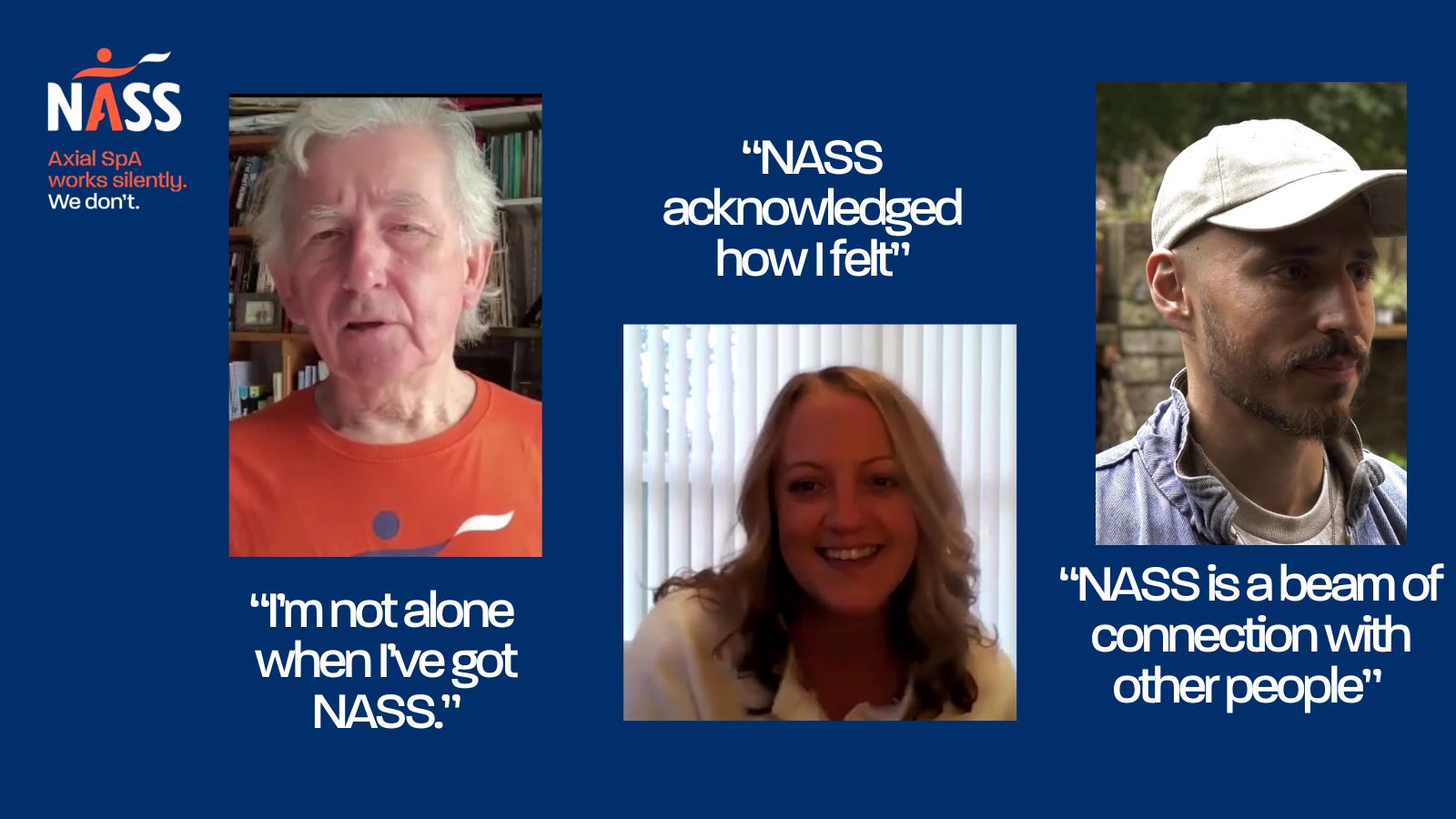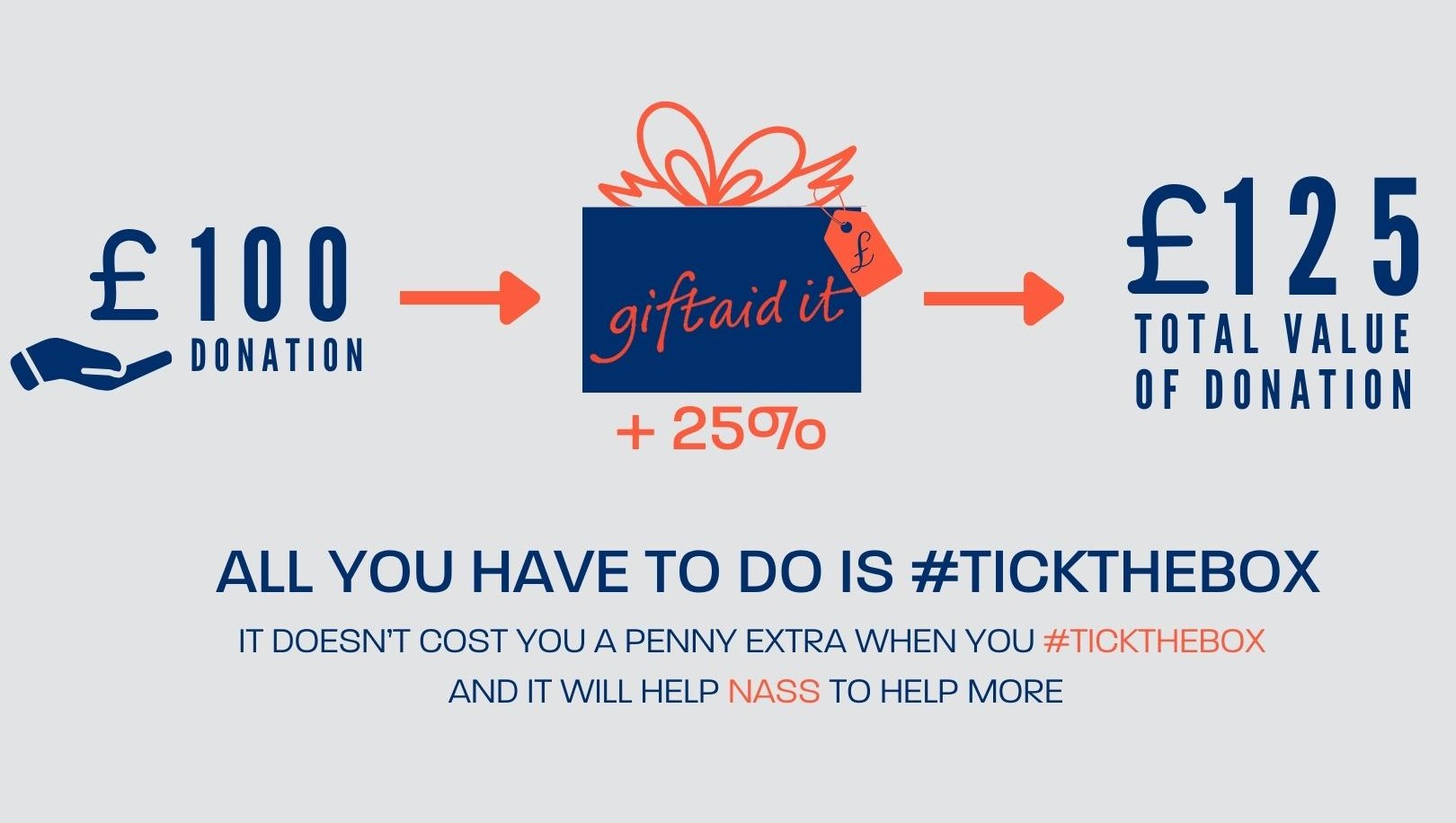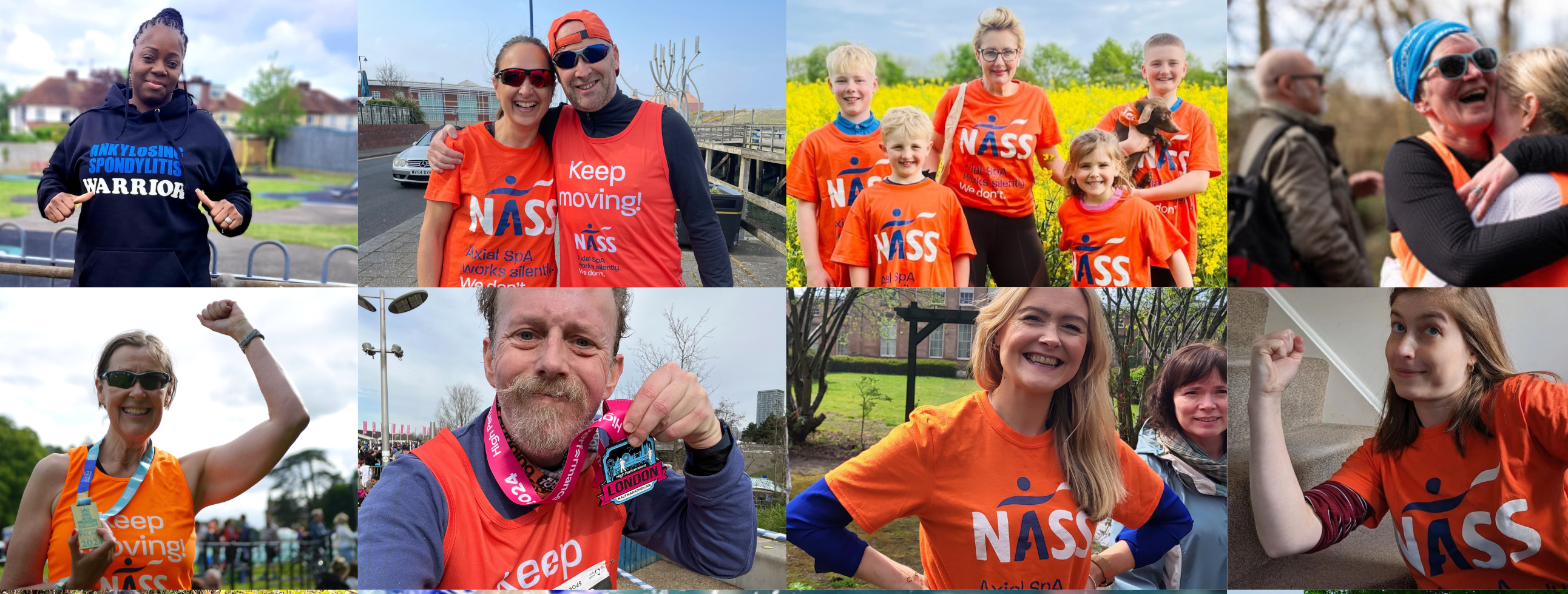
Donate to the NASS winter appeal
We urgently need your help to ensure that we can reach the growing number of people with axial SpA, like Jamie, Geoff & Lizzie, who only have NASS to turn to for support.
Donate today
If you are a UK tax payer, please don’t forget to add Gift Aid to your donation which can add 25% more to NASS at no cost to you.
Last year we generated £12,500 from Gift Aid. This could support 2,150 people with axial SpA to receive support and guidance via the NASS Helpline.

Gift Aid is a government initiative that allows donations given to charity to be tax-effective. As soon as you give your permission, by completing our Gift Aid declaration form, we can claim the tax back on your donation.
You qualify for Gift Aid if you meet the following criteria:
*You pay Income Tax and/or Capital Gains tax at a rate at least equal to the amount of Gift Aid claimed on all all your donations in that tax year, otherwise it is your responsibility to pay the difference.
Whenever you donate to us, online or over the phone, you’ll be asked if you want to add Gift Aid to your donation.
Don’t worry if you’ve forgotten to add Gift Aid – you can sign up today by filling in this form and returning it by post: 2023 Gift Aid Declaration form updated
Or you can call us on 020 8741 1515 (option 2).
Gift Aid can be claimed on both individual and sponsorship donations provided they are gifts.
Certain donations are not eligible for Gift Aid. If your donations fall into any of the following categories, Gift Aid should not be claimed:
You have been charged an entry fee e.g. a ticket for performance or a sports event
You have bought something
You have entered a competition e.g. a raffle or sweepstake
Your donation is on behalf of someone else or a group of people e.g. collection from work colleagues
You qualify for Gift Aid if you meet the following criteria:
Are you a higher rate taxpayer? Unlock the full potential of your generosity! Opting for Gift Aid isn’t just about magnifying your impact—it’s a savvy financial decision. By ticking the box, you can reclaim extra percentages, reduce your tax liability, and support people affected by axial SpA. Learn more.
If you pay tax at a rate of 40% or above, you can claim the difference between the higher and basic rate on the total value of your donation. If you want to receive the additional tax relief you must:
No. To make it easy for both you and NASS, the declaration wording normally covers present, future and past donations. We can back-claim four years and we’ll continue to claim until you tell us otherwise, so long as you’re eligible.
If you’ve changed your name, moved house or no longer qualify for Gift Aid due to a change in tax circumstance, please let us know by calling us on 020 8741 1515 or by emailing fundraising@nass.co.uk
If you have any questions about signing up to Gift Aid to support NASS, please email fundraising@nass.co.uk or call 020 8741 1515 and press option 2.

We urgently need your help to ensure that we can reach the growing number of people with axial SpA, like Jamie, Geoff & Lizzie, who only have NASS to turn to for support.
Donate today
Find out why your support really does matter, the impact your support can have, and why your support has never been more urgent.
Find out more1 in 200 of the adult population in the UK have axial SpA (AS). That's twice as many as multiple sclerosis and Parkinson's disease.
Axial SpA (AS) is a condition that affects young people. Symptoms start late teens to early twenties, with the average age of onset being 26.
The current average delay to diagnosis from when symptoms start is 8.5 years, by which irreversible damage to the spine may have occurred.
59% of people with axial SpA (AS) report experiencing mental health problems compared to 25% of those with musculoskeletal conditions overall.